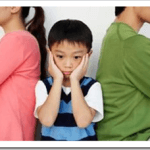After Divorce: Choose Pro-Active vs. ReA...
By Rosalind Sedacca, CDC Parenting is never easy. The challenges are enormous. Decisions are rarely black and white. How much should you indulge your children? When do you step in on sibling or friend-related battles? How much can you trust other parents watching your child for sleepovers and play dates? How tolerant should you be regarding food and eating issues? When should you step in with discipline? When are you crossing the line with punishment? The questions and decisions are infinite, emotionally challenging and hard to resolve. All of this is life as usual for parents in a traditional marriage. When you add the component of divorce to the mix, the waters are considerably more muddied. And many divorced parents find themselves in the position of questioning their true motives when faced with parenting decisions. What about you? Are your behaviors influenced by your feelings about your former spouse? Are













